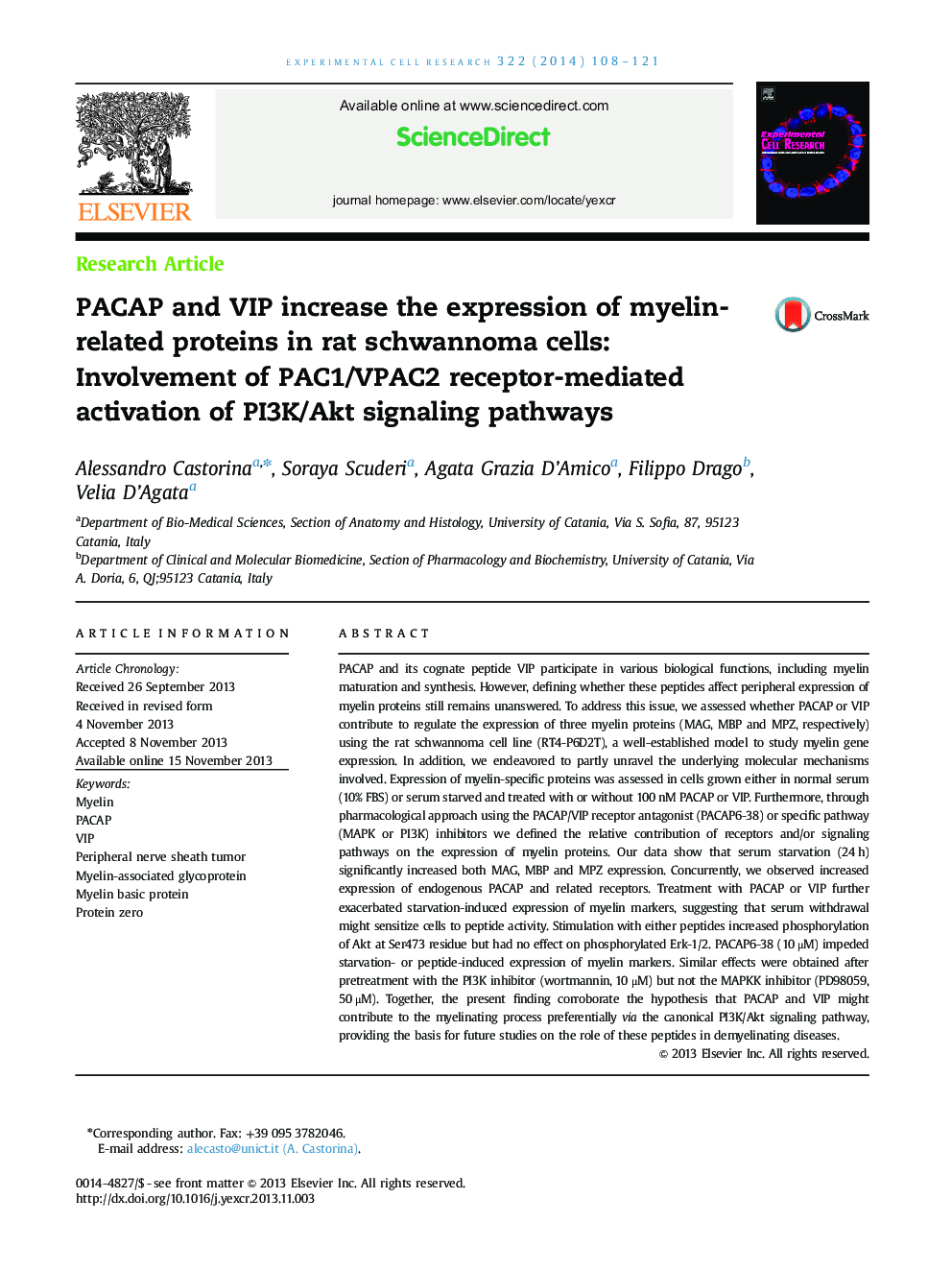| Article ID | Journal | Published Year | Pages | File Type |
|---|---|---|---|---|
| 10904072 | Experimental Cell Research | 2014 | 14 Pages |
Abstract
PACAP and its cognate peptide VIP participate in various biological functions, including myelin maturation and synthesis. However, defining whether these peptides affect peripheral expression of myelin proteins still remains unanswered. To address this issue, we assessed whether PACAP or VIP contribute to regulate the expression of three myelin proteins (MAG, MBP and MPZ, respectively) using the rat schwannoma cell line (RT4-P6D2T), a well-established model to study myelin gene expression. In addition, we endeavored to partly unravel the underlying molecular mechanisms involved. Expression of myelin-specific proteins was assessed in cells grown either in normal serum (10% FBS) or serum starved and treated with or without 100 nM PACAP or VIP. Furthermore, through pharmacological approach using the PACAP/VIP receptor antagonist (PACAP6-38) or specific pathway (MAPK or PI3K) inhibitors we defined the relative contribution of receptors and/or signaling pathways on the expression of myelin proteins. Our data show that serum starvation (24 h) significantly increased both MAG, MBP and MPZ expression. Concurrently, we observed increased expression of endogenous PACAP and related receptors. Treatment with PACAP or VIP further exacerbated starvation-induced expression of myelin markers, suggesting that serum withdrawal might sensitize cells to peptide activity. Stimulation with either peptides increased phosphorylation of Akt at Ser473 residue but had no effect on phosphorylated Erk-1/2. PACAP6-38 (10 μM) impeded starvation- or peptide-induced expression of myelin markers. Similar effects were obtained after pretreatment with the PI3K inhibitor (wortmannin, 10 μM) but not the MAPKK inhibitor (PD98059, 50 μM). Together, the present finding corroborate the hypothesis that PACAP and VIP might contribute to the myelinating process preferentially via the canonical PI3K/Akt signaling pathway, providing the basis for future studies on the role of these peptides in demyelinating diseases.
Keywords
Related Topics
Life Sciences
Biochemistry, Genetics and Molecular Biology
Cancer Research
Authors
Alessandro Castorina, Soraya Scuderi, Agata Grazia D'Amico, Filippo Drago, Velia D'Agata,
